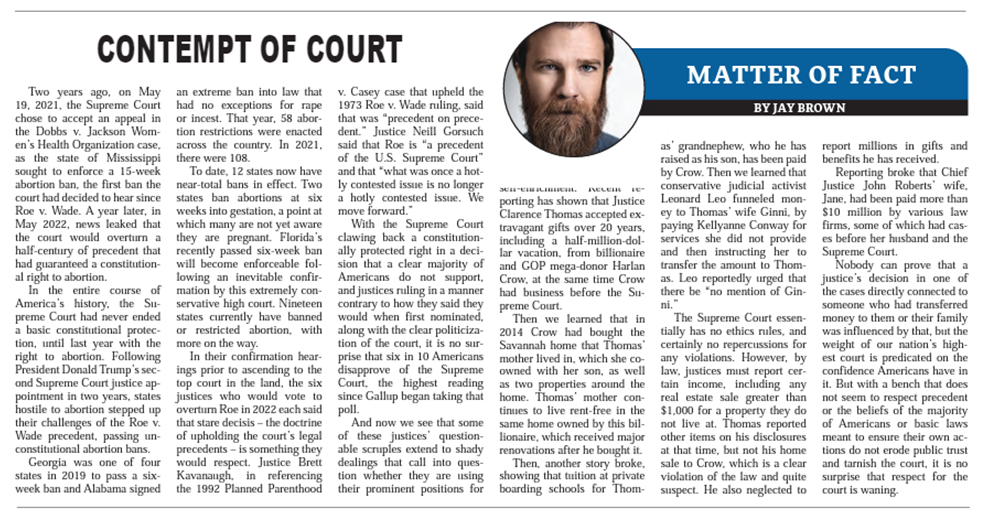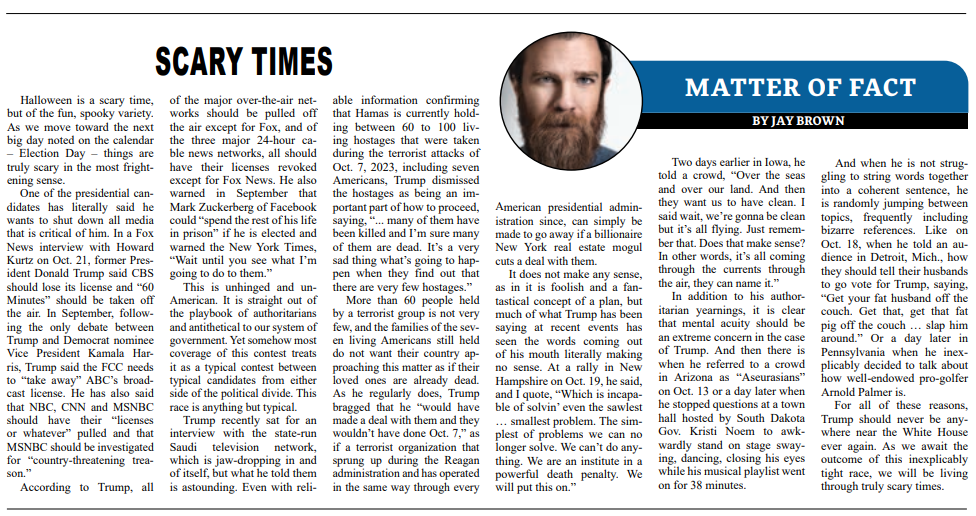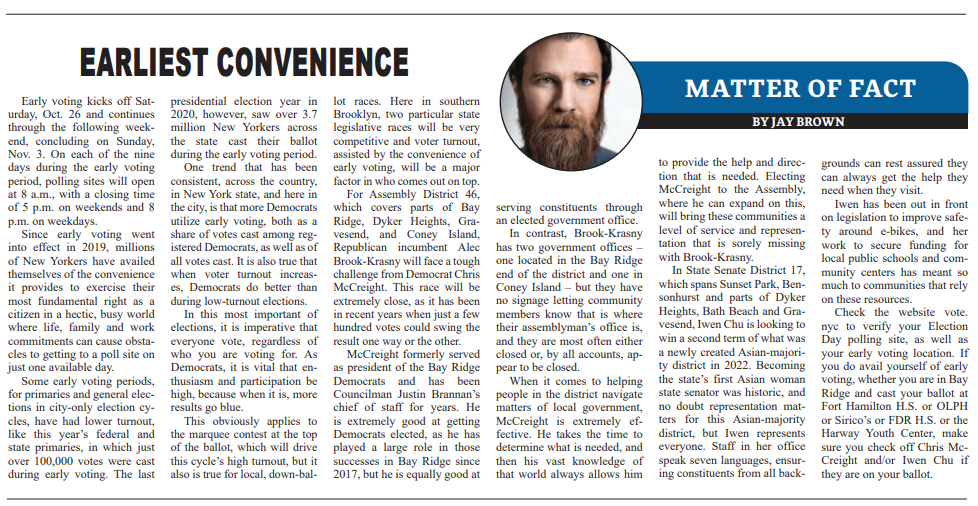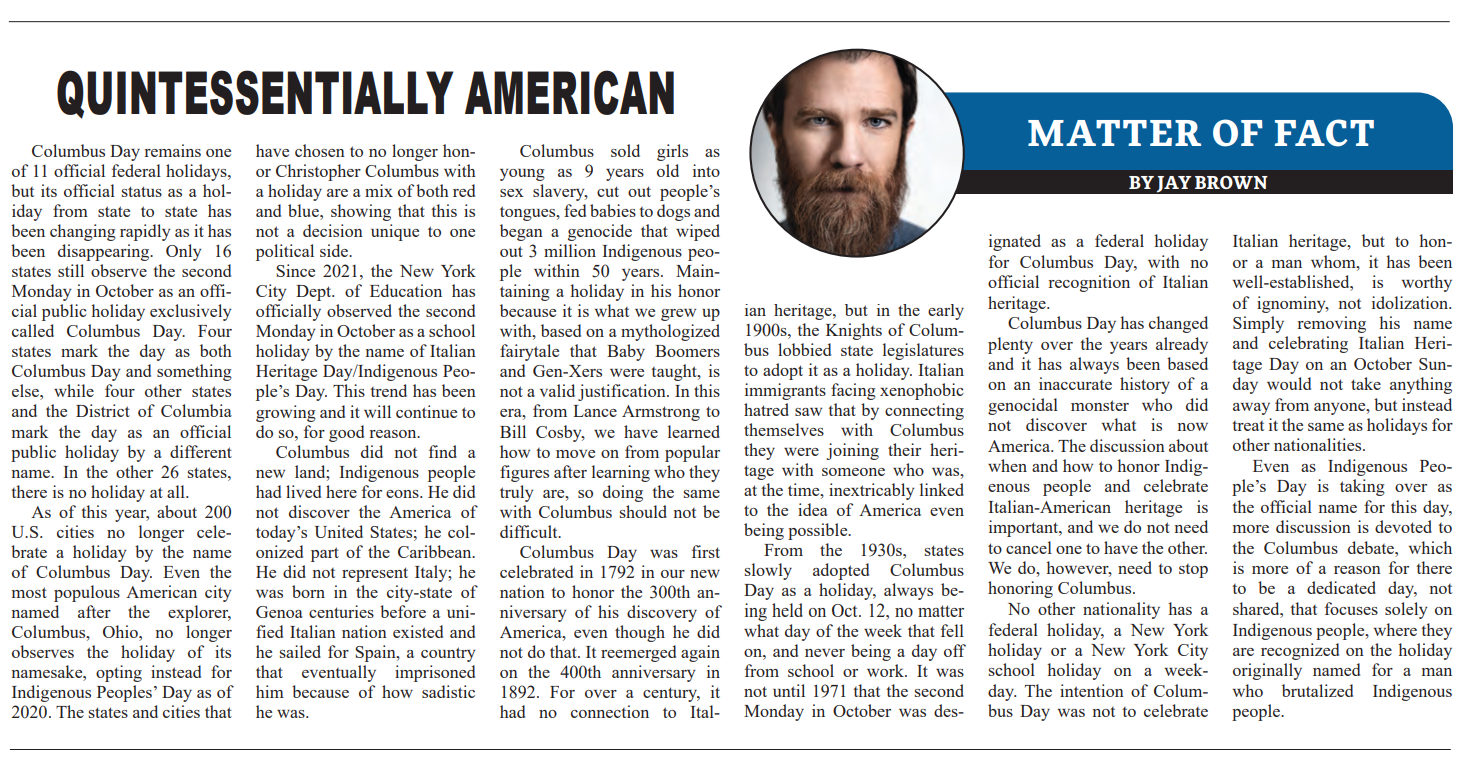This column, from the weekly opinion piece MATTER OF FACT, first appeared on BrooklynReporter.com, the Home Reporter and Spectator dated May 20, 2023
Two years ago, on May 19, 2021, the Supreme Court chose to accept an appeal in the Dobbs v. Jackson Women’s Health Organization case, as the state of Mississippi sought to enforce a 15-week abortion ban, the first ban the court had decided to hear since Roe v. Wade. A year later, in May of 2022, news leaked that the court would overturn a half-century of precedent that had guaranteed a constitutional right to abortion.
In the entire course of America’s history, the Supreme Court had never ended a basic constitutional protection, until last with the right to abortion. Following Trump’s second Supreme Court justice appointment in two years, states hostile to abortion stepped up their challenges of the Roe v. Wade precedent, passing unconstitutional abortion bans.
Georgia was one of four states in 2019 to pass a six-week ban and Alabama signed an extreme ban into law that had no exceptions for rape or incest. That year, 58 abortion restrictions were enacted across the country. In 2021, there were 108.
To date, twelve states now have near-total bans in effect. Two states ban abortions at six weeks into gestation, a point at which many are not yet aware they are pregnant. Florida’s recently passed six-week ban will become enforceable following an inevitable confirmation by this extremely conservative high court. Nineteen states currently have banned or restricted abortion, with more on the way.
In their confirmation hearings prior to ascending to the top court in the land, the six justices who would vote to overturn Roe in 2022 each said that stare decisis – the doctrine of upholding the court’s legal precedents – is something they would respect. Justice Kavanaugh, in referencing the 1992 Planned Parenthood v. Casey case that upheld the 1973 Roe v. Wade ruling, said that was “precedent on precedent.” Justice Gorsuch said that Roe is “a precedent of the U.S. Supreme Court” and that “what was once a hotly contested issue is no longer a hotly contested issue. We move forward.”
With the Supreme Court clawing back a constitutionally protected right in a decision that a clear majority of Americans do not support, and justices ruling in a manner contrary to how they said they would when first nominated, along with the clear politicization of the court, it is no surprise that six in ten Americans disapprove of the Supreme Court, the highest reading since Gallup began taking that poll.
And now we see that some of these justices’ questionable scruples extend to shady dealings that call into question whether they are using their prominent positions for self-enrichment. Recent reporting has shown that Clarence Thomas accepted extravagant gifts over twenty years, including a half-million-dollar vacation, from billionaire and GOP mega-donor Harlan Crow, at the same time Crow had business before the Supreme Court.
Then we learned that in 2014 Crow had bought the Savannah home that Clarence Thomas’s mother lived in, which she co-owned with her son, as well as two properties around the home. Thomas’s mother continues to live rent-free in the same home owned by this billionaire, which received major renovations after he bought it.
Then, another story broke, showing that tuition at private boarding schools for Thomas’s grandnephew, who he has raised as his son, has been paid by Crow. Then we learned that conservative judicial activist Leonard Leo funneled money to Thomas’s wide Ginni, by paying Kellyanne Conway for services she did not provide and then instructing her to transfer the amount to Thomas. Leo reportedly urged that there be “no mention of Ginni.”
The Supreme Court essentially has no ethics rules, and certainly no repercussions for any violations. However, by law, justices must report certain income, including any real estate sale greater than $1,000 for a property they do not live at. Thomas reported other items on his disclosures at that time, but not his home sale to Crow, which is a clear violation of the law and quite suspect. He also neglected to report millions in gifts and benefits he has received.
Reporting broke that Chief Justice Roberts’ wife, Jane, had been paid more than $10 million by various law firms, some of which had cases before her husband and the Supreme Court.
Nobody can prove that a justice’s decision in one of the cases directly connected to someone who had transferred money to them or their family was influenced by that, but the weight of our nation’s highest court is predicated on the confidence Americans have in it. But with a bench that does not seem to respect precedent or the beliefs of the majority of Americans or basic laws meant to ensure their own actions do not erode public trust and tarnish the court, it is no surprise that respect in the court is waning.




